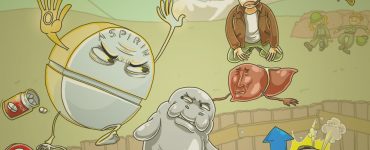Congratulations! You have worked hard through undergrad, medical school and are ready to embark on your transition to residency. It’s Match Day!
It’s been a challenging year, and we salute all of your hard work and share your excitement as you prepare to devote your life to helping others. To get you in the right mindset, we’ve got a Match Day story shared by Aziza Bomani, who is graduating from Edward Via Virginia College of Osteopathic Medicine, Blacksburg Campus in May 2020. She explains what it took to get through the residency application and interview process, and how she felt during Match Day 2020.
By Aziza Bomani, May 2020 graduate of Edward Via Virginia College of Osteopathic Medicine, Blacksburg Campus
Hi, everyone! I’m Aziza, a fourth year medical student. Recently, I found out that I matched into my top choice of osteopathic neuromuscular medicine at St. Barnabas Hospital in New York. When I found out I was totally cool, calm and collected.
Like, I didn’t freak out at all. I was perfect. But in all seriousness, when I found out, I was probably more stressed out waiting for it than when the moment actually came; especially the hour before. And definitely the week before, I was totally stressing out thinking, “Did I make the right decision?” “Am I going to get where I need to go?”
Talking to my friends, family and other residents that I know, they kept telling me “Calm down!” So, when the moment came, it was just kind of over. I felt relieved that I knew where I was going, but I didn’t feel a lot different after. You think it’s a world-shaking moment that you’re in; that you’ll feel different afterward. I didn’t really, so that was interesting. It definitely lifted a weight off of my shoulders for sure, especially because I’m a non-traditional student graduating in five years instead of four (having to take some time off). That made me really nervous going into interviews, that taking time off would impact my residency interviews. But in all actuality, I had enough good recommendation letters, and I had enough volunteer activities to make up for it.
So I’d say, if you’re worried that you’re not the strongest of candidates, you can make up for it by doing other things. For instance:
- Make sure you’re very dedicated when you’re working on your rotations.
- Make sure you’re getting good, positive feedback.
- Make sure your recommendation letters are really, really good. And that you’re not just asking to get a recommendation letter, to get a recommendation letter. That you’re asking from someone who you know you did a good job for on their rotation and they are going to give you a very favorable letter.
I think great recommendation letters make all the difference because the programs are basically looking for people that they can get along with and people that they can interact well with. If you can convey that during your interview and during the application process, I think you’re definitely going to be more competitive.
When you’re doing your activities list and you’re writing things that interest you, go ahead and put the weird stuff on there, because they’re gonna ask you about it! It’s okay! I got just as many questions about my activities as I did by academics or my path to medicine. I even put stuff on there like eggnog – I’m an eggnog fiend. I’m learning Japanese, I’m in love with anime and Japanese culture. I also put on there that I love weightlifting. Stuff like that. Even if it’s not a traditional hobby. I also have knitting on there, too! So it doesn’t have to be like you’re a cross country, distance runner. Put what is personal to you. Because they’re not only interviewing you to figure out if you’re a good fit academically, they’re also asking you questions to make sure you’re a good fit. Basically let your personality shine through.
That’s going to be the best piece of advice I can give you because you’re going to end up where you need to be. I’ve talked to residents that didn’t match at their first choice and most of them still feel like they ended up where they needed to be. So even if you don’t match to your first choice, trust the process. You will get a good education wherever you go and just make the best of it.
As far as more general advice for preclinical years, I definitely used Picmonic a whole heck of a lot as a med school study tool! I’ve tried all the other popular medical study programs and resources out there and I think Picmonic worked the best for me. It just stuck in my head better and it’s something I could reference. Even during my clinical years, I could always pull the Picmonics (visual mnemonics) back in my head. Even when there was something I didn’t quite remember, it was very quick to go back to the original Picmonic and refresh my memory. So I definitely tell everybody I know to use Picmonic. It really, really, really is beneficial. I swear by it. I really do.
The last bit of advice is my personal life mantra. Don’t be a jerk, and you’ll be fine. Trust the process. It’s a long and a hard one but it’s definitely worth it and you’re gonna end up where you need to be, when you need to be there. And, I’m speaking from a non-traditional student point of view. I could not have imagined my life going this way, but everything happens for a reason and everything fell into place for me in a more perfect way than I could have imagined.
So good luck in your future career. You’ve got this and I’m rooting for you!
To hear more about Aziza’s experiences as a med student, you can subscribe to her youtube channel “As Nature Intended” here.













